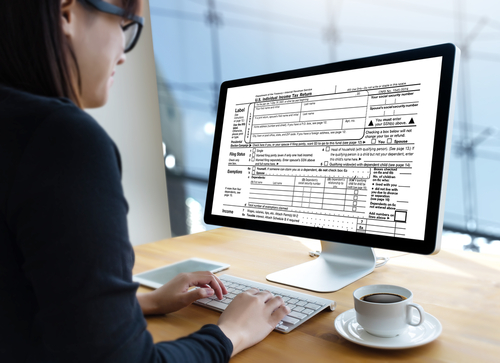
Emerging technology continues to revolutionize the way we operate—and accounting is no exception. The quickly evolving landscape can be daunting as a business leader or accountant. But don't worry; understanding these new technologies and integrating them into your practice (and your clients' businesses) is easier than you may think.
Summary
What is emerging technology?
Emerging technology in accounting is the use of new, innovative technologies to automate, streamline, and improve the management of financial data and operations. It includes a range of tools such as predictive analytics, artificial intelligence (AI), machine learning (ML), cloud computing and storage, automation, blockchain technology, robotics process automation (RPA), and more.
These technologies offer the potential for tremendous gains in efficiency, accuracy, security, and cost savings.
How can emerging technology help your clients?
By leveraging emerging technology, accountants and businesses can benefit from a host of advantages such as:
- Automation: Automate mundane and repetitive tasks such as invoice processing or data entry
- Efficiency: Streamline and accelerate processes such as account reconciliation or data analysis
- Cost savings: Reduce overhead costs associated with manual processes
- Data accuracy: Increase the accuracy of financial information
- Security: Protect sensitive data from internal and external threats
- Scalability: Quickly scale up or down depending on your clients’ needs
Although we are still in the early stages of many emerging technologies, business performance is becoming increasingly dependent on a company's ability to leverage technology to drive efficiency and access new capabilities. For this reason, it's essential for accountants to understand these technologies and the opportunities—and risks—they pose for their clients.
You don't need to become a computer scientist to advise your clients on these technologies, but you should learn enough to discuss them on a high level with business owners and technology decision-makers.
What emerging technologies are most impactful for accountants?
As a business leader or accountant, knowledge of the emerging technologies that are most impactful for accounting is an invaluable asset. Let’s explore some of the most popular and powerful tools available to help you make more informed decisions about which technology is best suited for your business and clients.
Power BI for data visualizations
Microsoft Power BI is a business intelligence platform offering powerful data visualizations to help business leaders, accountants, and advisors make more informed decisions.
The user interface is relatively intuitive for anyone familiar with Microsoft Excel. It also integrates with other Microsoft products and provides developers with sample code and application program interfaces (APIs) to enable embedding the Power BI dashboard into other software products.
With Power BI, accountants can quickly transform their clients' raw data into dynamic and interactive visuals, giving them insight into trends, outliers, and correlations they may not have seen before. This allows them to uncover hidden opportunities and better understand the data so they can help clients make more informed decisions.
If you have not looked into business intelligence software in the past, you might assume that such an advanced tool would be cost-prohibitive for small businesses. But Power BI is very affordable and offers different pricing levels depending on your needs. For example, Power BI Pro is just $9.99 per month per user and provides users with self-service analytics tools that allow them to visualize data with live dashboards and reports.
Cloud-based systems
Cloud-based software isn't exactly an emerging technology, but its takeover of accounting software is a new standard of operation within the industry. Nearly all accounting software systems offer cloud-based options, accessible anywhere with an internet connection, but some programs are now exclusively cloud-based.
Whereas professionals may once have been hesitant to adopt cloud systems for fear of data privacy, cloud-based accounting software has since advanced its data security. And with the added benefits of convenience, automatic updates and syncing, and the adoption of remote workforces, cloud-based software is becoming a clear choice for both firms and clients.
Big data analysis
Big data in accounting refers to using huge databases to analyze and inform financial decision-making. Accounting professionals across disciplines can enhance their client services by managing and leveraging big-data analytics to gain insights and unlock patterns that avoid high-risk financial moves, inform forecasting, and guide decision-making. Examples of leveraging big data in accounting include:
- Audit: Patterns seen from big data processing can quickly highlight valuable insights and find mistakes or concerning areas.
- Accounting: Big data can identify questions, help monitor and improve business performance, and support operational improvements.
- Tax: Big data can easily identify tax-related optimization and aid in evaluating global opportunities.
- Managerial accounting: Big data analysis can identify risks, create more accurate forecasts, and provide an overview of the financial landscape.
Generative AI
Programs like ChatGPT, Copilot, and others are already and increasingly being integrated into how professionals approach their tasks. In your accounting responsibilities specifically, generative AI programs can be extremely useful when summarizing data, highlighting key points and patterns from a large data set, or staying up-to-date on regulations and updates.
Likewise, some accounting software programs have built-in AI-powered tools—useful when analyzing client data, creating visuals or organizing information, answering questions on compliance, crunching numbers on a tax form, and more.
Using gen AI can therefore enhance your productivity by saving you many valuable hours that you can otherwise dedicate to the tasks that need your expertise. However, it comes with the dangers of inaccuracy, a lack of data privacy and security, and the potential of over-reliance on technology over the subject matter expert. It’s extremely important to check the work of AI to ensure accuracy, and only use AI tools within the data security framework established by your firm and clients. Remember: never put firm or client data into an open AI tool.
In a 2025 survey that Becker conducted, 77% of certified accounting professionals reported using AI in their work. But at this point, they use it mostly commonly for writing (as opposed to technical accounting tasks). 62% of respondents went on to say that AI will be "very important" for the profession over the next 10 years. So while there are reservations around how best to use AI, the profession seems to agree that it is important to learn to incorporate effectively.
Improve your emerging technologies skillsets
As an accountant, it's essential to be up-to-date on the latest best practices and technologies that can improve your clients' financial efficiency. Emerging technologies like Power BI, ERP, and AI technologies can be especially valuable in supporting your consulting and advisory work with clients.
If you want to level up your skills and learn more about these and other emerging technologies in the industry, check out our tech-focused CPE courses to help you help your clients in data-driven decision-making:
- Consulting Services: Emerging Technology Library
- 13.5 hours of CPE
- Using AI in a Fraud Investigation
- 2.5 credits
- AI Fundamentals: Understanding the Basics
- 1 credit
- Implementing AI
- 1 credit
- Navigating AI Ethics: Balancing Innovation and Responsibility
- 1 credit
- Artificial Intelligence for Accountants
- 3 credits








